Your cart is currently empty!
Month: July 2024

Unveiling the Power and Significance of the Holy Rosary: A Comprehensive Guide
Introduction
The Holy Rosary, an age-old Catholic devotion, has captivated the hearts of millions worldwide. Composed of prayers and meditations, it serves as a spiritual path for countless believers seeking solace, guidance, and communion with God.
This comprehensive guide will delve into the multifaceted aspects of the Holy Rosary, exploring its origins, history, symbolism, and the profound impact it has had on individuals and communities throughout centuries.
Historical Roots and Evolution
Origins in the Middle East
The origins of the Holy Rosary can be traced back to the early Christian communities in the Middle East. Monastic communities practiced a form of repetitive prayer known as “choral recitation,” where psalms and other passages were chanted collectively.
Development in Europe
By the 13th century, the Rosary had evolved into a more formalized devotion in Europe. Dominican friars, particularly Saint Dominic Guzman, played a pivotal role in popularizing the Rosary, using it as a catechetical tool to teach the faith to the laity.
Standardization and Papal Endorsement
Over the centuries, the Rosary underwent various modifications and refinements. In the 16th century, Pope Pius V standardized the Rosary’s structure, establishing the 15 “Mysteries” that form the core of its meditations.
Throughout history, successive popes have endorsed and encouraged the devotion, emphasizing its spiritual benefits and its role in promoting peace and unity among the faithful.
Symbolism and Structure
The Physical Rosary
The traditional Holy Rosary consists of 59 beads divided into five decades of ten beads each. These beads are often made of wood, glass, or stone, strung together on a cord or chain with a crucifix at one end and a center medal.
The Mysteries
The Rosary’s core comprises 20 “Mysteries,” which are specific events from the lives of Jesus Christ and the Virgin Mary. These mysteries are grouped into three categories:
- Joyful Mysteries (Monday and Saturday): The Annunciation, the Visitation, the Nativity, the Presentation in the Temple, the Finding in the Temple
- Sorrowful Mysteries (Tuesday and Friday): The Agony in the Garden, the Scourging at the Pillar, the Crowning with Thorns, the Carrying of the Cross, the Crucifixion
- Glorious Mysteries (Wednesday, Thursday, and Sunday): The Resurrection, the Ascension, the Descent of the Holy Spirit, the Assumption of Mary, the Coronation of Mary
The Prayers
Praying the Rosary involves reciting a series of prayers, including the “Our Father,” “Hail Mary,” “Glory Be,” and the “Fatima Prayer.” These prayers serve as meditative prompts, encouraging the faithful to reflect on the Mysteries and their significance.
Spiritual Benefits and Impact
Spiritual Growth and Contemplation
Regularly praying the Holy Rosary fosters a deeper connection with God and fosters spiritual growth. It allows individuals to meditate on the central events of salvation history and to contemplate the virtues of Jesus and Mary.
Peace and Serenity
The repetitive nature of the Rosary creates a calming and contemplative atmosphere. It encourages introspection and helps practitioners to find peace and serenity amidst life’s challenges.
Intercession and Healing
The Rosary is often invoked as a powerful intercessionary prayer. Many believers have reported experiencing miraculous healings, conversions, and favors through the devotion.
Community and Communion
Praying the Rosary in groups fosters a sense of community and communion among the faithful. It serves as a unifying practice that brings people together in prayer and shared devotion.
Practical Guide to Praying the Rosary
Step-by-Step Instructions
To pray the Holy Rosary, follow these simple steps:
- Begin with the Sign of the Cross.
- Pray the Apostle’s Creed.
- Pray the Our Father.
- Pray three Hail Marys.
- Proclaim the Glory Be.
- Announce the first Mystery, followed by the Our Father.
- Pray ten Hail Marys while meditating on the Mystery.
- Recite the Glory Be.
- Repeat steps 6-8 for each of the remaining Mysteries.
- Conclude with the Hail Holy Queen prayer.
- End with the Sign of the Cross.
Tips for Effective Prayer
- Choose a quiet and conducive place for prayer.
- Focus on the Mysteries and their significance.
- Allow yourself time to reflect and meditate.
- Pray with a sincere and humble heart.
- Consider using a Rosary guide or app for guidance.
Conclusion
The Holy Rosary is a timeless spiritual devotion that has captivated believers for centuries. Its enduring appeal lies in its ability to foster spiritual growth, provide comfort and peace, and unite the faithful in prayer. By embracing the Rosary and incorporating it into our daily lives, we can deepen our relationship with God and experience the transformative power of this ancient tradition.
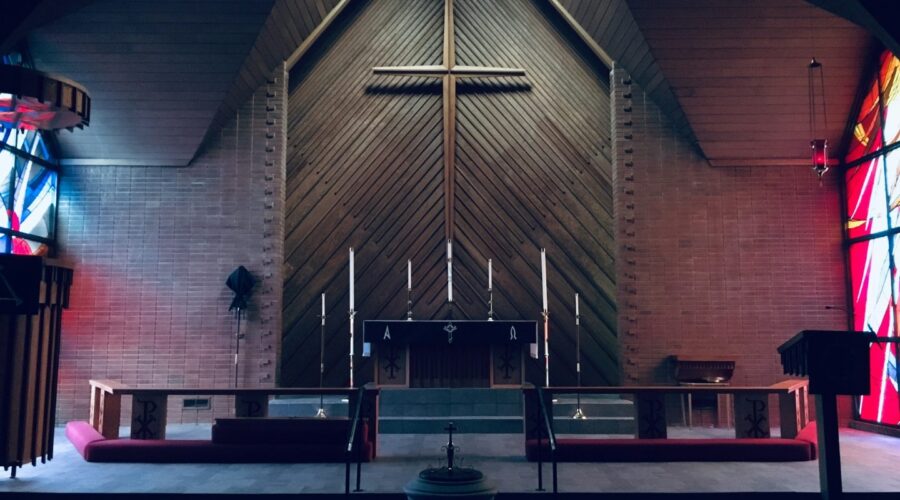
Unlocking the Power of Prayer with Joyce Meyer: A Guide to Prayer Requests
Introduction
Joyce Meyer, a renowned Christian speaker and author, emphasizes the transformative power of prayer. Her ministry has established a robust prayer department that connects individuals with God through prayer requests. This blog post will guide you on how to submit your prayer requests to Joyce Meyer, providing you with valuable insights and tips to maximize your prayers’ effectiveness.
Step-by-Step Guide to Submitting Prayer Requests
1. Identify Your Heart’s Desire
Before penning your request, take time to reflect and discern the specific prayer concern that weighs heavy on your heart. Be clear and concise in your request, focusing on one particular area of need.
2. Submit Your Request Online
3. Provide Essential Details
When submitting your request, include the following information:
- Your first name (last name optional)
- Specific prayer request
- Additional details or context (optional)
- Country of residence
- Email address (for updates on your request)
Types of Prayer Requests
- Personal Needs: Health, relationships, financial concerns
- Family and Friends: Praying for loved ones, guidance, and support
- World Events: Interceding for nations, peace, and social issues
- Church and Ministry: Lifting up pastors, congregations, and mission work
Tips for Effective Prayers
1. Pray in Faith
Trust that God hears and cares about your requests (Mark 11:24).
2. Be Specific
Clearly articulate your prayer concerns instead of using vague or general language.
3. Submit with Humility
Approach God with a humble heart, recognizing our dependence on His will (James 4:10).
4. Pray Regularly
Make prayer a consistent part of your life, not just during times of crisis (1 Thessalonians 5:17).
5. Be Patient
God’s timing may not always align with our expectations. Trust in His sovereignty and wait patiently for His answer (Psalm 27:14).
Understanding God’s Response
1. Answered Prayers
God can answer our prayers in various ways, including:
- Directly providing what we ask for
- Providing alternative solutions or blessings
- Using our circumstances to strengthen our faith
2. Unanswered Prayers
Not all prayers are answered immediately or in the way we expect. Reasons may include:
- Our request is not in line with God’s will
- God has a different plan or timing
- We need to grow in our faith or surrender to His sovereignty
Additional Resources
- Joyce Meyer Connect
- Joyce Meyer Facebook Page
- Joyce Meyer Instagram Page
- Joyce Meyer YouTube Channel
Conclusion
Submitting prayer requests to Joyce Meyer’s ministry can be a powerful step in connecting with God and seeking His guidance. By following the steps outlined above and embracing the principles of effective prayer, you can experience the transformative power of prayer in your life. Remember, God hears your prayers and desires to answer them according to His perfect will and timing.

Discover the Grandeur and History of St. Patrick’s Cathedral, Dublin
Introduction
Nestled in the heart of Dublin, Ireland, St. Patrick’s Cathedral is a majestic architectural marvel and a spiritual sanctuary that has witnessed centuries of Irish history. Founded in the 12th century, the Cathedral has played a pivotal role in the religious, political, and cultural landscape of Dublin and Ireland.
Historical Significance
Foundation and Early Years
The Cathedral was founded in 1191 by Archbishop John Comyn, on the site of a Viking church. It was dedicated to Saint Patrick, Ireland’s patron saint, and quickly became the seat of the Archbishop of Dublin. During the Middle Ages, the Cathedral underwent several expansions and renovations, and its rich architectural features showcase the evolving styles of Gothic architecture.
Reform and Restoration
In the 16th century, the Cathedral was influenced by the Protestant Reformation and experienced a period of transition. In the 19th century, it underwent a major restoration under the direction of Architect Benjamin Guinness, whose family is renowned for the Guinness Brewery. The restoration aimed to preserve the Cathedral’s historic features while incorporating elements of Gothic Revival architecture.
Architectural Marvel
Exterior
The exterior of St. Patrick’s Cathedral is an awe-inspiring sight. Its massive stone facade is adorned with intricate carvings, gargoyles, and flying buttresses. The Cathedral’s steeple, added in the 14th century, rises to a height of 92 meters and dominates the Dublin skyline.
Interior
The interior of the Cathedral is equally breathtaking. The vaulted ceiling, supported by elegant columns, creates a sense of grandeur. The stained-glass windows depict biblical scenes and historical figures, casting colorful hues throughout the space. The choir stalls, pulpit, and other furnishings are exquisite examples of craftsmanship.
Tombs and Notable Burials
St. Patrick’s Cathedral is the final resting place of many notable Irish individuals. The most famous of these is Jonathan Swift, author of “Gulliver’s Travels,” whose tomb can be found in the Cathedral’s south aisle.
- Robert Emmet, Irish rebel
- Sir John Bushe, Lord Chief Justice of Ireland
- Michael Boyle, Archbishop of Armagh
Visiting the Cathedral
Tours and Services
Guided tours of St. Patrick’s Cathedral are available daily, providing visitors with an in-depth exploration of its history, architecture, and significance. The Cathedral also holds regular religious services, open to the public.
Admission and Hours
Admission to St. Patrick’s Cathedral is charged, with discounts available for children and seniors. The Cathedral is open to the public from Monday to Saturday, with slightly shorter hours on Sundays.
Conclusion
St. Patrick’s Cathedral is a timeless treasure that embodies the rich history and enduring spirit of Dublin and Ireland. Its architectural splendor, historical significance, and spiritual atmosphere make it a must-visit destination for travelers seeking cultural and spiritual enrichment.
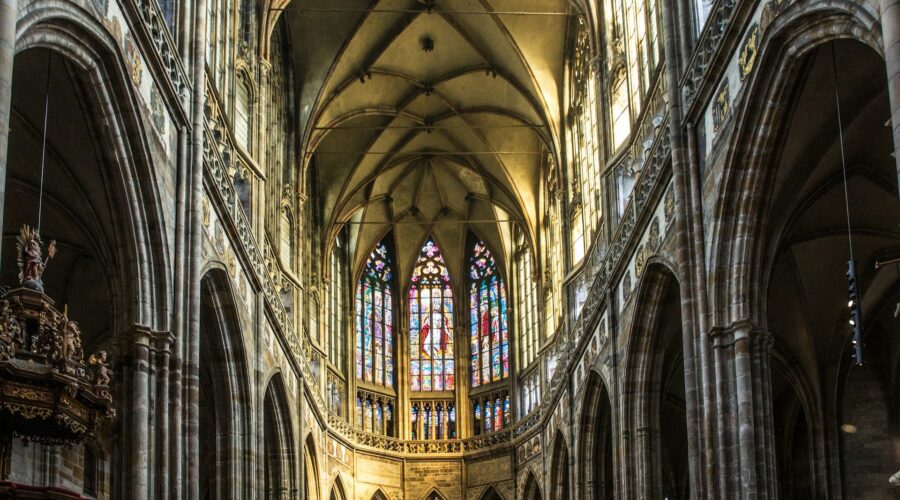
The Good Shepherd: A Biblical and Theological Perspective
Introduction
The parable of the Good Shepherd is one of the most well-known and beloved stories in the Bible. It is a story about God’s love and care for his people, and it has been used to teach about the nature of Jesus Christ and the role of the church.
In this blog post, we will explore the parable of the Good Shepherd in more depth. We will look at the biblical context of the parable, the different ways it has been interpreted, and the implications it has for our lives today.
The Parable of the Good Shepherd
The parable of the Good Shepherd is found in the Gospel of John, chapter 10. In this chapter, Jesus is teaching about the nature of his relationship with his followers. He says that he is the Good Shepherd, and that his followers are his sheep.
Jesus says that the Good Shepherd knows his sheep and that his sheep know him. He says that the Good Shepherd lays down his life for his sheep. And he says that the Good Shepherd will gather his sheep together and lead them to eternal life.
The Biblical Context of the Parable
The parable of the Good Shepherd is one of a series of parables that Jesus told about himself. In these parables, Jesus reveals his identity and his mission. He shows that he is the Messiah who has come to save his people.
The parable of the Good Shepherd is particularly significant because it shows the relationship between Jesus and his followers. Jesus is the Good Shepherd who knows his sheep and who lays down his life for them. And his followers are the sheep who know him and who follow him.
The Different Interpretations of the Parable
The parable of the Good Shepherd has been interpreted in many different ways. Some people see it as a parable about the relationship between God and his people. Others see it as a parable about the relationship between Jesus and his followers. And still others see it as a parable about the role of the church.
There is no one right way to interpret the parable of the Good Shepherd. The important thing is to understand the basic message of the parable, which is that God loves his people and that Jesus Christ is the Good Shepherd who came to save them.
The Implications of the Parable for Our Lives Today
The parable of the Good Shepherd has many implications for our lives today. First, it teaches us that God loves us. He knows us by name, and he cares for us deeply. Second, it teaches us that Jesus Christ is the Good Shepherd who came to save us from our sins. He died on the cross so that we could have eternal life. Third, it teaches us that we are called to be sheep who follow the Good Shepherd. We are to listen to his voice and obey his commands.
The parable of the Good Shepherd is a powerful reminder of God’s love for us. It is a story that can give us hope and comfort in the midst of life’s challenges. It is a story that can help us to grow in our faith and to live more closely in accordance with God’s will.
Conclusion
The parable of the Good Shepherd is a beautiful and meaningful story that teaches us about the nature of God’s love and the role of Jesus Christ in our lives. It is a story that has been told and retold for centuries, and it continues to speak to our hearts today.
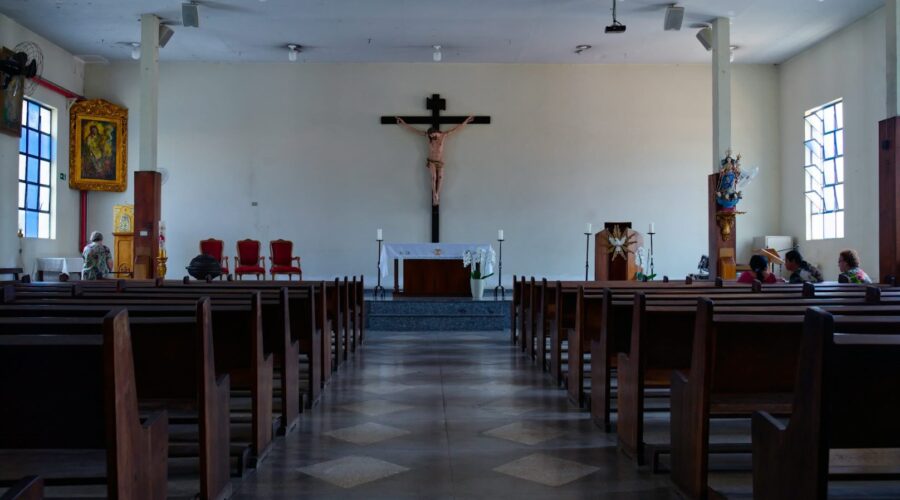
Calvary Chapel: A Comprehensive Guide to the Evangelical Christian Megachurch Movement
Introduction
Calvary Chapel is a global network of Evangelical Christian churches founded in 1965 by Chuck Smith. With over 1,900 churches worldwide, it is one of the largest Pentecostal denominations in the world. Calvary Chapels are known for their contemporary worship style, expository preaching, and emphasis on personal relationships with Jesus Christ.
History
Calvary Chapel began as a small Bible study group led by Chuck Smith in Costa Mesa, California. As the group grew, they moved into a former movie theater, which became their first church building. In the 1970s, Calvary Chapel experienced rapid growth, planting new churches throughout the United States and internationally.
Doctrine
Calvary Chapels adhere to a conservative evangelical theology. They believe in the Trinity, the deity of Jesus Christ, the authority of the Bible, and the power of the Holy Spirit. They emphasize personal salvation through faith in Jesus Christ and the importance of living a life of holiness.
Key Beliefs
- The Bible is the sole authority for faith and practice.
- God is a triune being, consisting of the Father, Son, and Holy Spirit.
- Jesus Christ is the only way to salvation, and all people need to repent of their sins and trust in Him for forgiveness.
- The Holy Spirit indwells believers and empowers them to live a godly life.
- The church is the body of Christ and is responsible for carrying out His Great Commission.
Worship
Calvary Chapels are known for their contemporary worship style. Worship services typically include a blend of traditional hymns and modern praise songs, led by a worship band. Preaching is a central part of worship, and sermons are typically expository, focusing on a particular passage of Scripture.
Outreach
Calvary Chapels are actively involved in outreach and missions. They support a variety of ministries, including homeless shelters, food banks, and overseas missions. Many Calvary Chapels also have youth groups, children’s ministries, and adult Bible studies.
Controversies
Calvary Chapel has been involved in several controversies over the years, including:
- In the 1980s, Chuck Smith was accused of heresy for his teachings on the Trinity. He later recanted his views.
- In the 1990s, Calvary Chapel was accused of being a cult. These accusations were largely based on the fact that Calvary Chapels are independent and do not have a central governing body.
- In recent years, Calvary Chapel has been criticized for its political views. Some critics have accused Calvary Chapel of being too closely aligned with the Republican Party.
Conclusion
Calvary Chapel is a significant force in the Evangelical Christian world. Its emphasis on personal relationships with Jesus Christ, contemporary worship, and expository preaching has helped it attract a large following. While the denomination has faced some controversies over the years, it remains a popular and growing movement.
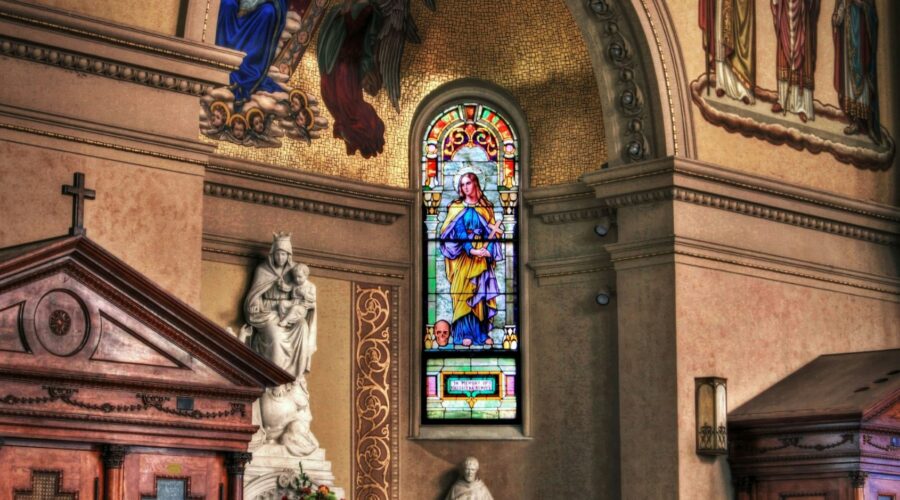
Discover the Harvest Church: A Comprehensive Guide
Introduction
The Harvest Church is a Pentecostal Christian megachurch headquartered in Brampton, Ontario, Canada. It is one of the largest churches in Canada and the world, with over 15,000 attendees weekly. Founded in 1994 by Bishop Bola Odeleke, the church has a strong focus on social justice, community outreach, and international missions.
History
The Harvest Church began as a small group of believers meeting in a rented space in Brampton. Under Bishop Odeleke’s leadership, the church grew rapidly, and in 1998, it moved into its current facility, the Harvest Bible University. The church has since expanded to several other locations in Canada and around the world.
Beliefs
The Harvest Church adheres to the following core beliefs:
- The Bible is the infallible and authoritative Word of God.
- Jesus Christ is the Son of God and the only Savior of mankind.
- Salvation is by grace through faith in Jesus Christ.
- The Holy Spirit indwells believers and empowers them to live a Christian life.
- The Church is the body of Christ and is called to fulfill the Great Commission.
Ministries
The Harvest Church has a wide range of ministries that cater to the needs of its members and the community. These include:
- Youth Ministry
- Children’s Ministry
- Men’s Ministry
- Women’s Ministry
- Community Outreach
- International Missions
Community Outreach
The Harvest Church is actively involved in community outreach programs. These programs include:
- Food banks
- Clothing drives
- Homeless shelters
- After-school programs
- Community clean-ups
International Missions
The Harvest Church supports missionaries in over 50 countries around the world. These missionaries are involved in a variety of ministries, including:
- Evangelism
- Church planting
- Education
- Medical care
- Community development
Controversies
The Harvest Church has been involved in several controversies over the years. These controversies have included:
- Allegations of financial irregularities
- Accusations of abusive leadership
- Questions about the church’s accountability
Conclusion
The Harvest Church is a complex and controversial organization. However, it is also a church that has had a significant impact on the lives of many people. Bishop Bola Odeleke and his team of leaders have built a church that is focused on social justice, community outreach, and international missions. The church’s commitment to these values is evident in the many ministries that it operates and the lives that it has changed.
Harvest Church Locations Location Address Brampton, Ontario 2570 Bovaird Dr. E, Brampton, ON L6R 0V1 Mississauga, Ontario 2670 Hurontario St., Mississauga, ON L5A 2G3 Toronto, Ontario 5500 Sheppard Ave. E, Toronto, ON M1H 1T3 Vancouver, British Columbia 9227 Scott Rd., Delta, BC V4K 5M4 London, United Kingdom The Dominion Centre, 101 Finsbury Pavement, London EC2A 1ER 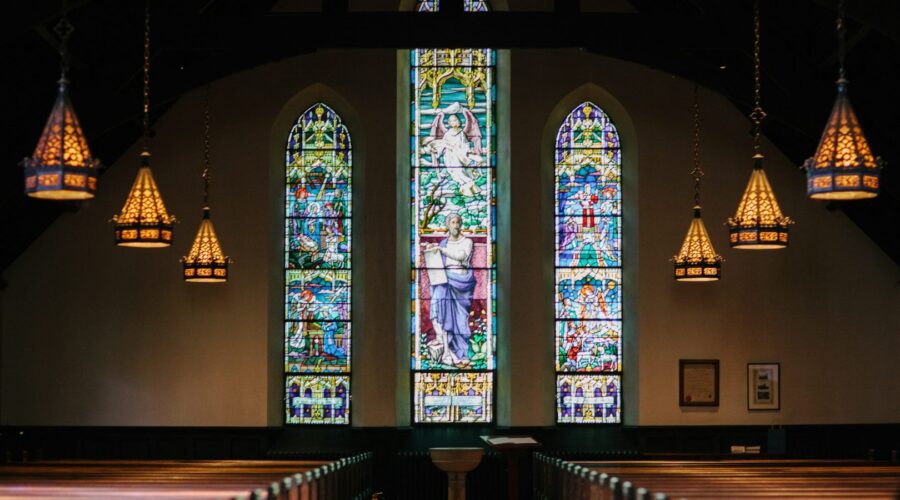
Discover the Heart of Community and Faith: Christ Fellowship Church
Welcome to the vibrant tapestry of Christ Fellowship Church, where faith and fellowship intertwine to create a thriving spiritual community. With a network of campuses spread across the United States and beyond, we invite you to experience the transformative power of God’s love and the joy of authentic connections.
Our Mission: Connecting People to God and One Another
At the core of Christ Fellowship Church lies a deep-rooted mission: to connect people to God and one another. We believe that every individual has the potential to know Jesus Christ, experience His love, and grow in their faith. Through our engaging worship services, small groups, and community outreach programs, we strive to create a welcoming and supportive environment where everyone can connect, grow, and find purpose.
Community at Christ Fellowship
Community is the lifeblood of Christ Fellowship Church. We believe that true faith is not just about individual beliefs, but also about communal experiences. Our campuses offer a wide range of opportunities for people to connect, support each other, and build meaningful relationships:
- Small Groups: Our small groups are intimate gatherings that provide a safe and supportive environment for spiritual growth, encouragement, and accountability.
- Serve Teams: By serving others alongside fellow believers, individuals can make a tangible difference in their communities and experience the joy of giving back.
- Life Groups: Our life groups are designed around shared interests, hobbies, or life stages, fostering a sense of belonging and connecting people beyond the walls of our buildings.
Impactful Ministries: Reaching Out and Making a Difference
Christ Fellowship Church extends its reach far beyond its walls through a diverse range of ministries that aim to make a positive impact on the local community and the world at large:
Ministry Focus Youth Ministries Empowering young people to navigate the challenges of adolescence, build strong faith foundations, and develop their God-given potential Missions Outreach Supporting missionaries and partnering with organizations around the world to spread the Gospel, provide aid, and make a lasting difference in communities Community Care Providing practical and emotional support to those in need, including food assistance, counseling services, and emergency relief Our Beliefs: Grounded in Biblical Truths
Christ Fellowship Church holds steadfastly to the fundamental truths of the Christian faith as revealed in the Bible. Our beliefs include:
- The Trinity: God exists as Father, Son (Jesus Christ), and Holy Spirit.
- The Authority of the Bible: The Bible is the inspired and infallible Word of God.
- Salvation through Faith: Individuals receive salvation by grace through faith in Jesus Christ as their Lord and Savior.
- The Lordship of Christ: Jesus Christ is the head of the Church and the authority over our lives.
Join the Christ Fellowship Family
We invite you to experience the life-changing community and faith that awaits you at Christ Fellowship Church. Whether you’re seeking spiritual growth, genuine connections, or simply a place to belong, our doors are open to you. Visit our website to find a campus near you and take the first step towards discovering the difference that God can make in your life.

Discover the Heart of Christian Faith: A Comprehensive Guide to Central Christian Church
Embark on a journey of faith and discovery as we delve into the rich history, vibrant ministries, and profound teachings of Central Christian Church. Nestled amidst bustling cityscapes or tranquil suburban settings, these churches stand as beacons of hope, offering a transformative spiritual experience for seekers of all walks of life.
History: A Tapestry of Tradition and Innovation
The roots of Central Christian Church can be traced back to the early days of the Christian faith. Founded in the 19th century by devout followers of Jesus Christ, these churches have witnessed countless milestones, weathered storms, and emerged as pillars of their communities.
Early Beginnings and Expansion
- Missionary zeal fueled the establishment of Central Christian Churches in various regions.
- Dynamic leadership guided their growth, fostering a spirit of unity and service.
Challenges and Triumphs
- Wars, social upheavals, and economic crises tested the resilience of these churches.
- Faithful members persevered through adversity, reaffirming their commitment to God.
Contemporary Relevance
- Central Christian Churches have embraced technological advancements to reach a broader audience.
- They remain relevant by addressing contemporary societal issues and offering practical guidance.
Central Beliefs: The Cornerstones of Faith
The doctrine of Central Christian Church centers around the core tenets of Christianity, emphasizing salvation through the grace of God and the transformative power of Jesus Christ.
Trinity: The Triune Nature of God
- God exists as Father, Son (Jesus Christ), and Holy Spirit.
- Each person of the Trinity possesses distinct roles while maintaining unity of being.
Salvation: Grace and Faith
- Humanity is inherently sinful, separated from God.
- Through the death and resurrection of Jesus Christ, believers are reconciled to God.
The Bible: The Inspired Word of God
- The Old and New Testaments are recognized as authoritative Scripture.
- They provide guidance, revelation, and instruction for Christian living.
Ministries: Nurturing Faith and Serving the Community
Central Christian Churches are characterized by their vibrant ministries, ranging from worship services to outreach programs, catering to the spiritual and practical needs of their members and communities.
Worship: Experiencing God’s Presence
- Sunday services feature uplifting music, inspiring messages, and opportunities for prayer.
- Special gatherings, such as baptisms and communion, foster a sense of community.
Discipleship: Growing in Faith
- Bible study groups and classes provide in-depth exploration of Scripture.
- Mentoring programs connect experienced believers with newer members.
Outreach: A Call to Serve
- Mission trips allow members to engage in hands-on service domestically and internationally.
- Local outreach programs support the homeless, the hungry, and the marginalized.
Teachings: Transforming Lives through the Word
Central Christian Churches are known for their passionate and practical teachings that seek to equip believers for a life of faith and purpose.
Christ-Centered: Focusing on Jesus
- Sermons and teachings emphasize the life, teachings, and sacrifice of Jesus Christ.
- Believers are encouraged to model their lives after Christ’s example.
Practical Guidance: Applying Faith to Life
- Teachings provide guidance on topics such as marriage, parenting, and financial management.
- Members are empowered to navigate life’s challenges through biblical principles.
Cultural Engagement: Faith and Society
- Central Christian Churches address societal issues in a compassionate and informed manner.
- They encourage members to engage with their communities as agents of change.
Finding a Central Christian Church
If you are seeking a faith community that cherishes tradition, embraces innovation, and is committed to serving others, a Central Christian Church may be the perfect fit for you.
Locate a Church Near You
- Visit the Central Christian Church website or contact the national headquarters.
- Regional directories and online search engines can also assist in your search.
Attend a Service
- Experience the worship, community, and teachings of a Central Christian Church firsthand.
- Observe the church’s culture and mission to determine if it aligns with your values.
Connect with Members
- Introduce yourself to the pastor or staff members.
- Engage with other attendees during fellowship time or social gatherings.
Conclusion
Central Christian Church stands as a beacon of faith, offering a transformative spiritual experience for those seeking a meaningful connection with God, a supportive community, and practical guidance for life. Explore the rich history, vibrant ministries, and profound teachings of these churches as you embark on a journey of faith and discovery.
May the Holy Spirit guide you as you embrace the transformative power of Central Christian Church.

Unlocking the Daily Mass with EWTN
In today’s fast-paced world, seeking spiritual nourishment amidst the hustle and bustle can be challenging. That’s where EWTN’s daily Mass comes in, offering a convenient and meaningful way to connect with the sacred.
What is EWTN Daily Mass?
EWTN (Eternal Word Television Network) is a global Catholic network that broadcasts a wide range of faith-based content. Their daily Mass is an integral part of their programming, offering viewers the opportunity to participate in the central liturgy of the Catholic Church from the comfort of their own homes.
Benefits of Participating in EWTN Daily Mass
- Spiritual Enrichment: Regular participation in Mass nourishes the soul, deepens connection with God, and fosters a sense of community.
- Convenience: EWTN’s daily Mass is broadcast live and available online, making it accessible to those with busy schedules or mobility challenges.
- Global Reach: EWTN broadcasts to millions of households worldwide, connecting Catholics across borders.
- Liturgical Education: The Mass provides an opportunity to learn about the sacraments, scripture readings, and Catholic traditions.
How to Participate in EWTN Daily Mass
Participating in EWTN daily Mass is easy and convenient. Here’s how:
- Tune In: EWTN daily Mass is broadcast live at 8:00 AM Eastern Time (7:00 AM Central Time, 5:00 AM Pacific Time). Check your local listings or visit EWTN’s website for channel information.
- Online Streaming: You can also stream the daily Mass live or on-demand at EWTN’s website or via their mobile app.
- Prepare: Before participating, take a few moments to prayerfully prepare your heart and mind. You may also want to have a Bible, prayer book, or rosary available.
- Engage: During the Mass, actively participate by following the readings, responding to the prayers, and offering your intentions.
Frequently Asked Questions
What is the format of the Mass?
EWTN daily Mass follows the traditional Catholic Mass format, including the Liturgy of the Word, Liturgy of the Eucharist, and concluding prayers.
Can I receive Communion at home?
Unfortunately, it is not possible to receive Communion at home through televised Mass. Communion is a sacrament that requires the physical presence of a consecrated host.
Is it acceptable to watch a recorded Mass?
Yes, it is acceptable to watch a recorded Mass if you are unable to participate in a live broadcast. However, it is recommended to prioritize attending Mass in person when possible.
Can I make a donation to EWTN?
Yes, EWTN relies on donations to continue providing its free services. You can make a donation at EWTN’s website or by calling 1-800-854-6044.
Additional Resources
Conclusion
EWTN daily Mass is a valuable resource for Catholics seeking spiritual nourishment and connection with the Church. By participating in the daily Mass, you can deepen your faith, receive liturgical education, and experience the presence of Christ in your everyday life. Whether you join in person or tune in from afar, EWTN daily Mass is a convenient and meaningful way to encounter the sacred.
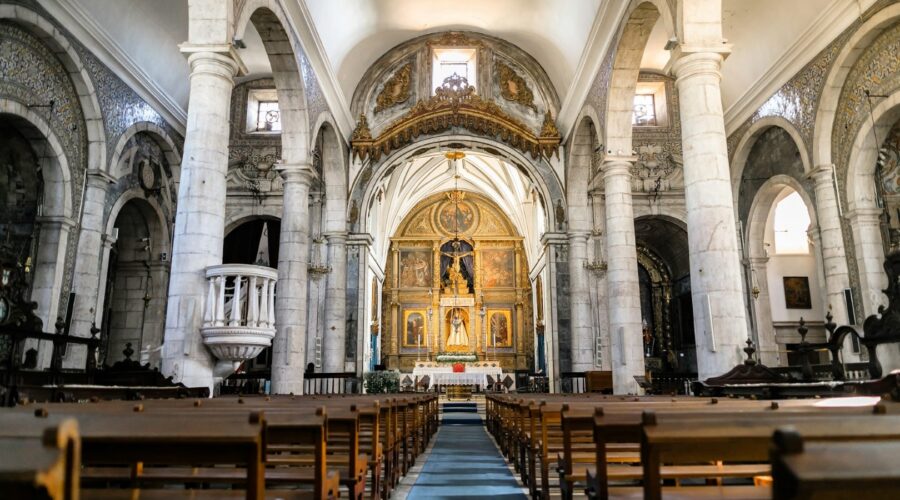
St. Michael the Archangel: A Guide to the Powerful Protector
Who is St. Michael the Archangel?
St. Michael the Archangel is one of the most powerful and well-known angels in Christian tradition. He is known as the “prince of angels” and is often depicted as a warrior angel, leading the forces of good against the forces of evil.
Michael’s name means “Who is like God?” and he is often associated with protection, strength, and courage. He is believed to be the patron saint of soldiers, police officers, and all those who work in dangerous or difficult situations.
St. Michael in the Bible
Michael is mentioned in several passages in the Bible. In the book of Daniel, he is described as a “great prince who stands guard over the sons of your people” (Daniel 12:1). In the book of Revelation, he is depicted as a warrior who defeats the dragon (Revelation 12:7-9).
Michael is also mentioned in the New Testament, where he is described as one of the archangels who stands before the throne of God (Jude 1:9).
St. Michael in Christian Tradition
Michael has been venerated as a saint in the Christian Church since the early centuries. He is often depicted in art and literature as a warrior angel, wearing armor and carrying a sword or spear.
Michael is also associated with several miracles, including the defeat of the devil at the Battle of Mount Gargano and the rescue of the city of Rome from the plague in the 6th century.
How to Pray to St. Michael
There are many different ways to pray to St. Michael. Here is one simple prayer:
Saint Michael the Archangel, defend us in battle. Be our protection against the wickedness and snares of the devil. May God rebuke him, we humbly pray, and do thou, O Prince of the Heavenly Host, by the power of God, cast into hell Satan and all the evil spirits who prowl about the world seeking the ruin of souls. Amen.
Conclusion
St. Michael the Archangel is a powerful protector and a source of strength and courage for all those who call upon him. If you are facing a difficult situation, or simply need some extra protection, pray to St. Michael. He will be there to help you.
Here are some additional tips for praying to St. Michael:
- Pray regularly, even when you are not facing a specific challenge.
- Be specific in your prayers. Ask St. Michael for help with whatever you are struggling with.
- Trust that St. Michael will hear your prayers and help you.
Additional Resources

Find the Perfect Church Near You: A Comprehensive Guide

Introduction
Attending a church is not just about fulfilling a religious obligation but also about connecting with a community, finding spiritual guidance, and making a meaningful contribution to society. Finding the right church near you can be a daunting task, especially if you’re new to the area or unfamiliar with different denominations and congregations. This comprehensive guide will provide you with all the information you need to make an informed decision about which church to attend.
Types of Churches
- Catholic Church: The largest Christian denomination worldwide, known for its hierarchical structure and emphasis on sacraments.
- Protestant Church: A diverse group of Christian denominations that emphasize the importance of personal faith and the authority of the Bible.
- Orthodox Church: An ancient Christian tradition that emphasizes the importance of tradition and the role of bishops.
- Non-Denominational Church: Churches that are not affiliated with a specific denomination and offer a blend of different traditions.
- Independent Church: Churches that are not affiliated with any other church or organization.
How to Find Churches Near You
- Online Directories: Websites like ChurchFinder and Church Locator allow you to search for churches by location, denomination, and other criteria.
- Local Newspapers: Church directories are often published in local newspapers, providing information about churches in the area.
- Community Centers and Libraries: Local community centers and libraries often have information about churches in the neighborhood.
- Ask Around: Talk to your friends, neighbors, or colleagues about churches they attend and recommend.
Factors to Consider When Choosing a Church
- Denomination: If you have a specific religious affiliation, you may want to look for churches within that denomination.
- Beliefs and Values: Consider the church’s core beliefs and values to ensure they align with your own spiritual journey.
- Worship Style: Different churches have different worship styles, such as traditional, contemporary, or blended. Choose a style that you find meaningful and engaging.
- Community Involvement: Look for churches that are actively involved in the community and offer opportunities for fellowship and service.
- Location and Schedule: Consider the church’s physical location and worship schedule to ensure they fit your lifestyle.
Benefits of Attending a Church
- Spiritual Growth: Churches provide a place for spiritual growth and reflection through sermons, Bible study, and prayer.
- Community and Fellowship: Churches offer opportunities to connect with like-minded people and build a sense of community.
- Service and Outreach: Many churches are actively involved in community outreach programs, providing opportunities to serve others.
- Guidance and Support: Pastors and church leaders can provide spiritual guidance, support, and counseling during difficult times.
- Personal Enrichment: Churches often offer a variety of programs and activities, such as Bible study groups, youth groups, and social events, which can enhance personal growth and well-being.
Conclusion
Finding the right church near you is a personal journey that requires careful consideration. By understanding the different types of churches, using online directories and local resources, and evaluating factors that are important to you, you can make an informed decision that will lead you to a fulfilling and meaningful church experience. Remember that churches are not just buildings but communities of faith that can provide spiritual guidance, support, and a sense of belonging.

Columbia Presbyterian: A Comprehensive Guide
Columbia Presbyterian is a world-renowned medical center located in New York City. It is affiliated with Columbia University and offers a wide range of medical services, including primary care, specialty care, and research.
History
Columbia Presbyterian was founded in 1807 as the New York Hospital. It was originally located in lower Manhattan, but moved to its current location in Washington Heights in 1892. The hospital has undergone several expansions and renovations over the years, and today it is one of the largest and most comprehensive medical centers in the United States.
Services
Columbia Presbyterian offers a wide range of medical services, including:
- Primary care
- Specialty care
- Research
- Education
The hospital has a strong focus on patient care, and it is known for its high-quality medical services. Columbia Presbyterian is also a major center for medical research, and it is home to several research centers that are dedicated to finding new and improved treatments for diseases.
Physicians
Columbia Presbyterian is home to a team of highly skilled and experienced physicians. The hospital’s physicians are experts in their fields, and they are committed to providing the best possible care to their patients.
Columbia Presbyterian also has a strong commitment to teaching, and its physicians are actively involved in teaching medical students and residents. The hospital’s physicians are dedicated to training the next generation of doctors, and they are committed to providing the best possible education to their students.
Facilities
Columbia Presbyterian has a state-of-the-art facility that is designed to provide patients with the best possible care. The hospital’s facilities include:
- A 2,300-bed hospital
- A 1,000-bed outpatient clinic
- A research center
- A library
- A chapel
Columbia Presbyterian’s facilities are designed to provide patients with a comfortable and healing environment. The hospital’s staff is committed to providing patients with the best possible care, and they are dedicated to making sure that patients have a positive experience during their stay.
Location
Columbia Presbyterian is located in Washington Heights, New York City. The hospital is easily accessible by public transportation, and it is also located near several major highways.
Columbia Presbyterian’s location is convenient for patients who live in New York City, and it is also accessible for patients who live in the surrounding areas.
Cost
The cost of medical care at Columbia Presbyterian varies depending on the type of care that is needed. The hospital offers a variety of payment options, and it is committed to working with patients to make sure that they can afford the care that they need.
Columbia Presbyterian also offers a variety of financial assistance programs, and it is committed to providing care to patients regardless of their ability to pay.
Conclusion
Columbia Presbyterian is a world-renowned medical center that offers a wide range of medical services. The hospital is known for its high-quality medical care, its commitment to teaching, and its state-of-the-art facilities. Columbia Presbyterian is a great choice for patients who are looking for the best possible medical care.
Contact Information
Columbia Presbyterian
622 West 168th Street
New York, NY 10032
(212) 305-2500